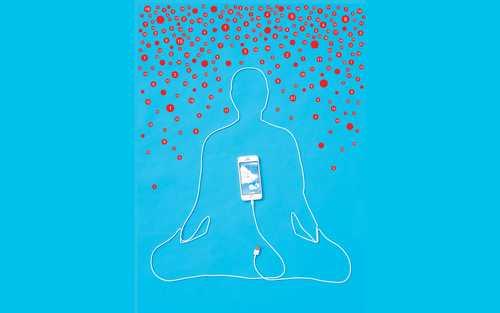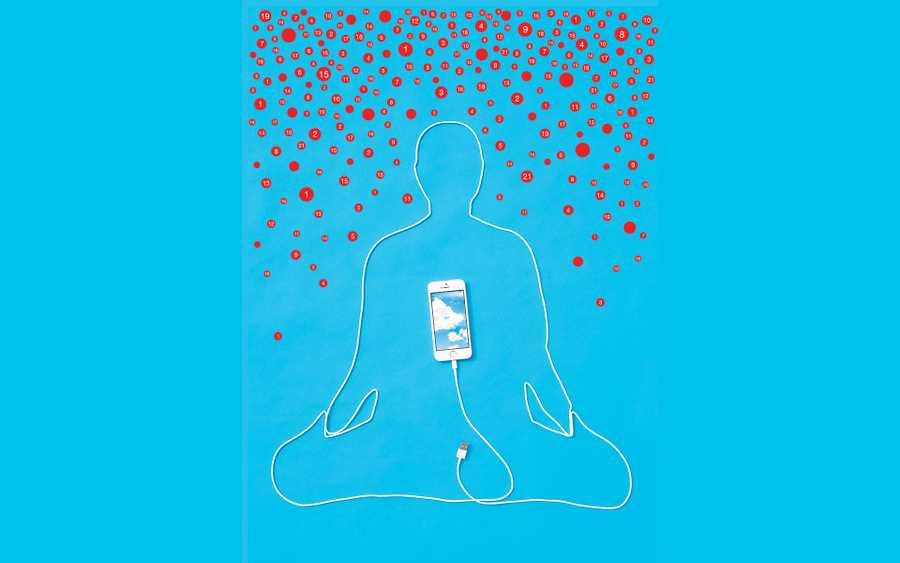Can Your Smartphone Make You Mindful?
Curated from: mindful.org
Ideas, facts & insights covering these topics:
6 ideas
·4.79K reads
15
Explore the World's Best Ideas
Join today and uncover 100+ curated journeys from 50+ topics. Unlock access to our mobile app with extensive features.
Not backed up by science
While popular, researchers say there is a serious lack of evidence to back up mindfulness apps, even though they are increasingly perceived as proven treatments for mental health.
132
1.4K reads
Seeking scientific validation
A handful of studies have been published on the efficacy of mindfulness apps, thanks in part to Headspace, one of the most popular apps in the field. In hopes of getting its app scientifically validated, the organization has partnered on more than 60 studies with 35 academic institutions. In the meantime, in lieu of research proving that apps work, marketers tend to draw misleading, but attractive claims.
123
706 reads
The paradox of mindfulness apps
Mindfulness disrupts unhelpful habits. If you get distracted easily or have addictions, mindfulness helps curb these habits. But, in contrast, apps become popular and profitable by getting users lightly addicted to repetitive use. So, can an app really treat addiction, or is it inherently part of the problem? As of now, we don’t know the answer to that question.
151
773 reads
Designing a culture
When people have their first meditation experience with an app, the nature of the app influences how they understand meditation. For the vast majority, meditation apps = meditation. So they miss the real point of mindfulness this - as a way to experience the present moment.
125
652 reads
The positive in digital mindfulness
Digital mindfulness training could be effective in theory: it can be affordable, accessible, flexible, anonymous, empowering, and enjoyable. It might be in helping users see mindfulness as part of their lives. But when a meditation app becomes just another habit, like checking email, it risks becoming less mindfulness training and more so just another piece of technology taking up headspace.
134
539 reads
Apps Are Changing Mindfulness
- Most apps use a subscription model, that rely on user dependence—reinforcing, rather than breaking, habits.
- Apps encourage the idea that meditation is a solo practice, whereas in the past it was often learned in group settings.
- It’s always guided—something you do alone or with headphones in. Users can’t ask questions or get personalized instruction.
- Meditation apps sometimes imply that their app’s brand of meditation is the only style of meditation.
128
719 reads
IDEAS CURATED BY
Traveling can make you smarter, more creative and improve your problem-solving abilities.
Isabella Santos's ideas are part of this journey:
Learn more about mindfulness with this collection
How to ask open-ended questions
How to avoid awkward silences
How to show interest in others
Related collections
Similar ideas
7 ideas
5 Best Meditation Apps to Relieve Stress in 2023
productive.fish
7 ideas
6 Best Meditation Apps to Relieve Stress in 2024
productive.fish
4 ideas
You Are Not Your Depression - Mindful
mindful.org
Read & Learn
20x Faster
without
deepstash
with
deepstash
with
deepstash
Personalized microlearning
—
100+ Learning Journeys
—
Access to 200,000+ ideas
—
Access to the mobile app
—
Unlimited idea saving
—
—
Unlimited history
—
—
Unlimited listening to ideas
—
—
Downloading & offline access
—
—
Supercharge your mind with one idea per day
Enter your email and spend 1 minute every day to learn something new.
I agree to receive email updates






